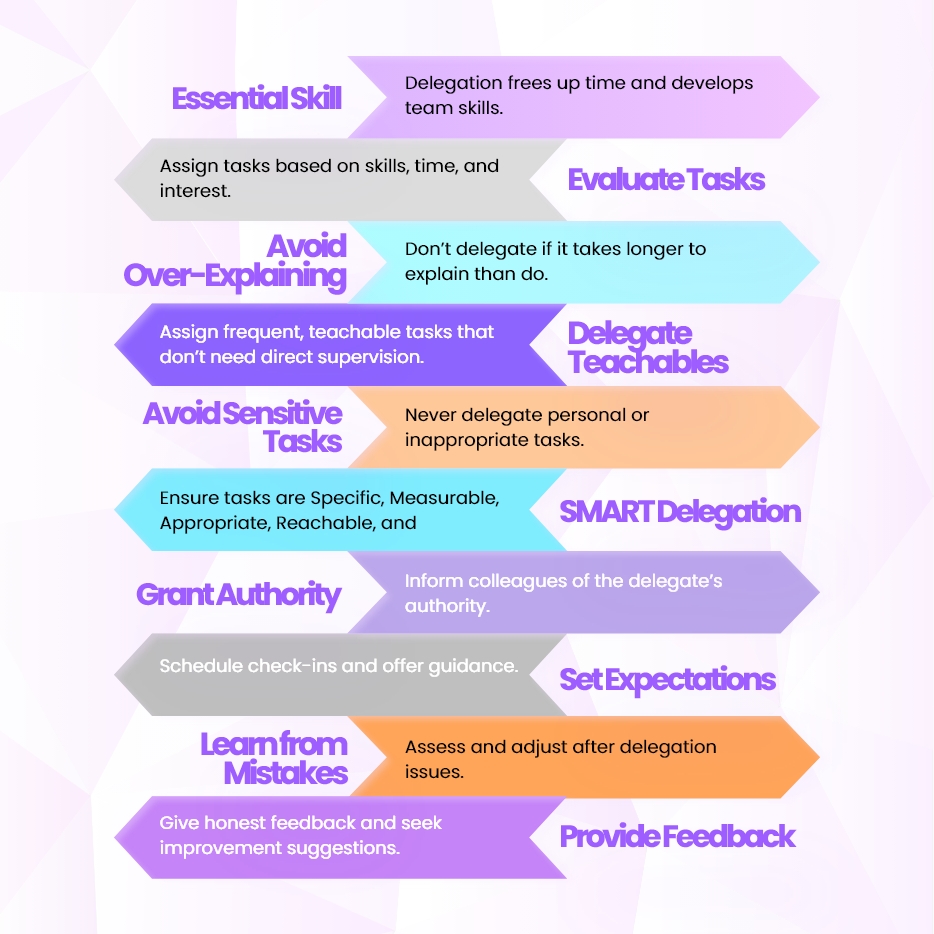Events and Press
To Delegate or Not: A Guide to Delegation
Delegation is more than offloading tasks, it’s a powerful tool that empowers your team, builds trust, and aligns actions with your organization’s mission. Knowing when and how to delegate can boost efficiency and improve outcomes.
Delegating isn’t just about saving time—it’s about developing your team. Here’s how to decide:
When to Delegate:
- Tasks that are repetitive, teachable, or don’t require constant supervision.
- Responsibilities that align with someone’s growth or skill-building.
- Work outside your core duties, even if you enjoy it.
When Not to Delegate:
- Sensitive or highly personal tasks requiring your direct oversight.
- Jobs that take longer to explain than to complete yourself.
- Tasks where your expertise is crucial or that you love doing.
Delegation Done Right
Use the SMART framework for effective delegation:
- Specific: Clearly define the task and expectations.
- Measurable: Set outcomes that can be tracked.
- Appropriate: Match the task to the person’s skills.
- Reachable: Ensure it’s achievable within the timeframe.
- Timebound: Assign a clear deadline.
Empower your delegate with the authority to make decisions and provide regular check-ins for alignment. Remember, failures are opportunities to learn and grow—approach them with a constructive mindset.
Why Delegation Matters
Delegation isn’t just about what gets done, it’s about how it’s done. By entrusting tasks, you empower others to grow, create a culture of trust, and free yourself to focus on strategic priorities.
Ready to master the art of delegation?
Get Filthy Enriched with Xapa
Explore the “To Delegate or Not” Xperience in the Xapa World mobile app. Build your delegation skills and see the impact on your team and yourself.


